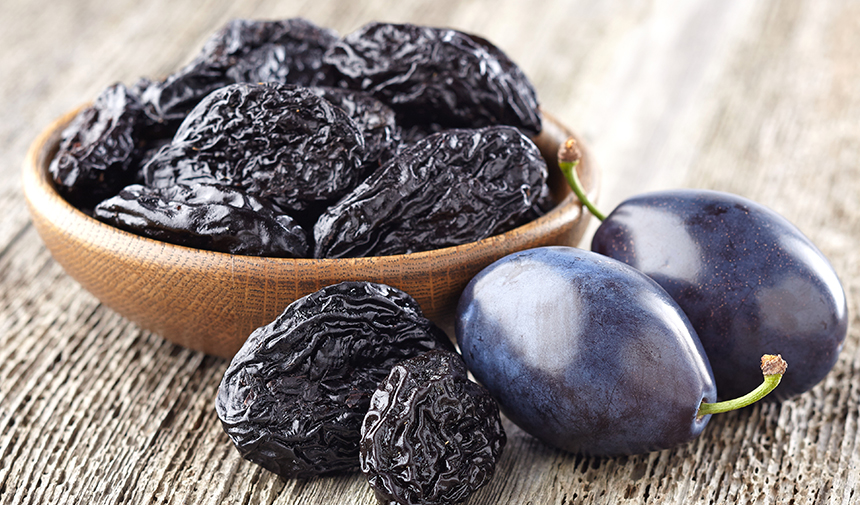Prunes are a fruit known for both its flavor and health benefits. With high nutritional value, prunes support body health in many ways. This small fruit is rich in vitamins, minerals and antioxidants, offering benefits ranging from digestive health to bone health. Here are the effects of prunes on the body and their role in healthy living.
Prunes are particularly rich in fiber. Fiber is critical for digestive health. Fibrous foods prevent constipation by regulating bowel movements. Prunes are known as a natural laxative and facilitate digestion by increasing bowel movements. The soluble and insoluble fibers it contains support the overall health of the digestive system and promote regular bowel movements.
Prunes also provide positive effects on bone health. Prunes, which contain high amounts of vitamin K, boron and potassium, increase bone mineral density and reduce the risk of osteoporosis. Vitamin K plays a role in the mineralization of bones and prevents bone loss. Boron regulates the metabolism of calcium and magnesium, which are essential for bone health, while potassium helps maintain bone density. For this reason, prune consumption is recommended for bone health, especially for postmenopausal women.
Rich in antioxidants, prunes help prevent cell damage. Antioxidants protect cells from oxidative stress by fighting free radicals. Antioxidants such as phenolic compounds and beta-carotene in prunes protect the body against chronic diseases. These compounds also support skin health and delay the signs of aging.
Prunes contain important nutrients that strengthen the immune system. Rich in vitamin C and iron, prunes increase the body’s resistance to infections. Vitamin C strengthens the immune system by promoting the production of white blood cells. Iron, on the other hand, is found in the structure of hemoglobin, which provides oxygen transportation in the body and increases energy levels. Especially for people prone to anemia, prunes are an effective food to eliminate iron deficiency.
Prunes also draw attention with their nutritional values that support heart health. Its high fiber content helps lower cholesterol levels. Soluble fibers reduce the absorption of LDL cholesterol, known as bad cholesterol, from the intestines. In addition, its potassium content regulates blood pressure and reduces the risk of hypertension. In this way, prune consumption contributes to the prevention of cardiovascular diseases by protecting heart health.
Prunes help stabilize blood sugar levels. Thanks to its low glycemic index, it does not raise blood sugar quickly. The fibers it contains reduce the risk of diabetes by ensuring that blood sugar rises in a balanced way. At the same time, it offers a healthy snack alternative by meeting the need for dessert naturally.
In conclusion, prunes are a nutritious fruit that provides numerous benefits to the body’s health. It has positive effects in many areas from digestive health to bone health, immune system to heart health. When consumed regularly, it supports a healthy lifestyle and helps prevent various diseases. For this reason, prunes should be an indispensable part of a balanced and healthy eating plan.



